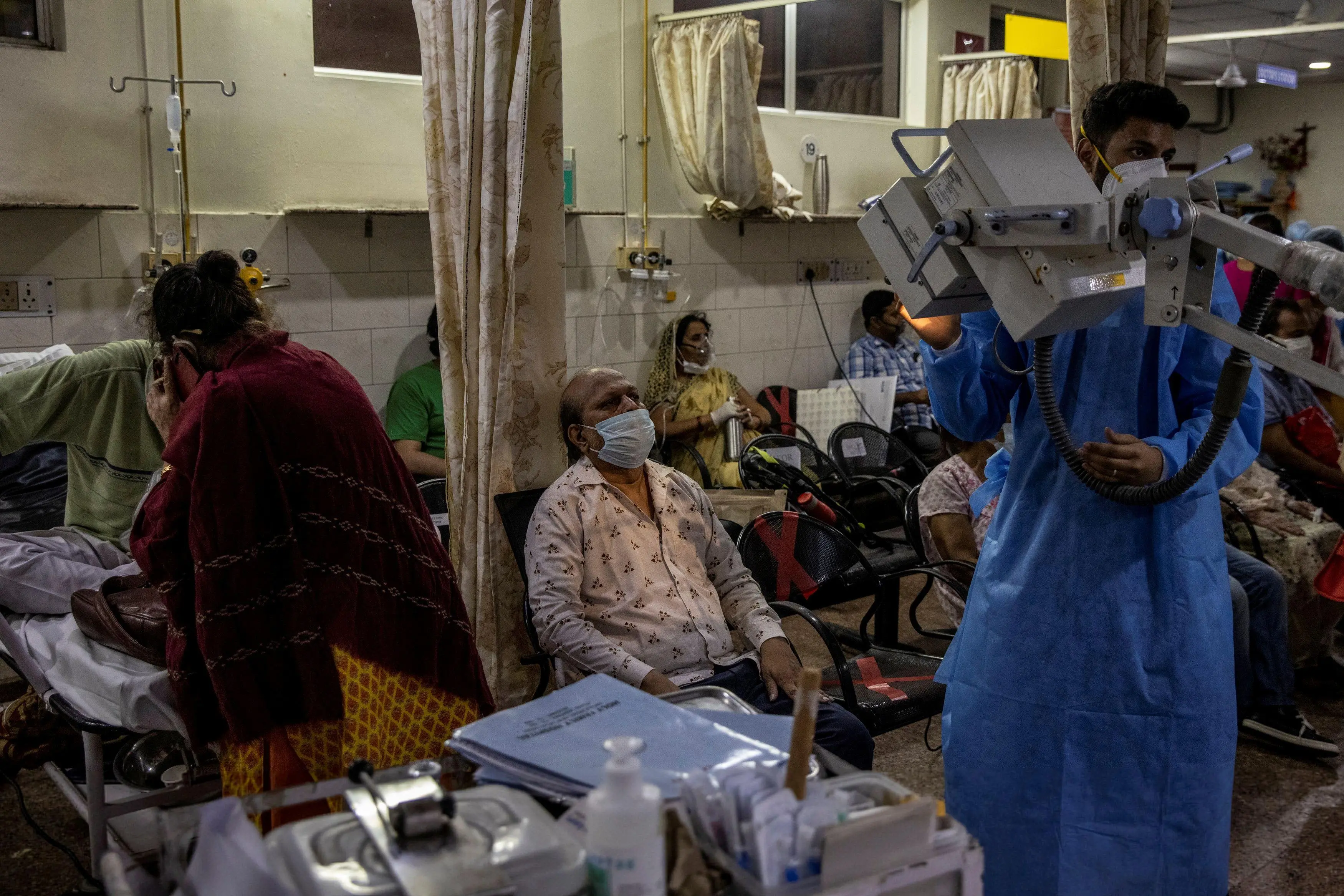PHOTO
While financial markets and many people in wealthy industrialised countries appear to believe that the pandemic is over, it is in fact accelerating globally and the worst may be yet to come, as the tragedy in India underlines.
The worldwide death toll passed 3 million in April, and COVID-19 has now killed more people than most other viral epidemics of the 20th and 21st centuries. While countries such as Israel, the US and UK may now be over the worst following rapid vaccination programs, the number of new cases per week has nearly doubled globally over the past two months, approaching the highest rate so far during the pandemic.
Even in the industrialized world, Europe continues to be hit hard and in April it passed the grim milestone of one million recorded deaths. As health specialists have warned, the situation is more troubling in emerging markets because many of these countries are far less advanced with their vaccination rollout.
World Health Organization chief Tedros Adhanom Ghebreyesus therefore pulled no punches in April when he asserted that confusion and complacency meant that the pandemic was growing “exponentially” and was a long way from over, but could still be brought under control in months with proven public health measures. Aside from vaccine take-up, he called for measures including wearing masks to reverse the trajectory of the pandemic, adding that “intensive care units in many countries are overflowing and people are dying – and it’s totally avoidable.”
For example, Brazil last week became the second country, after the US, to pass the grim milestone of 400,000 deaths. Experts have rightly warned the daily toll could remain high for several months due to slow vaccinations and loosening social restrictions.
Central to the WHOs recent warnings are that a greater global response is needed. The key element in this is improving the equity in vaccine distribution. About a million vaccine doses have now been administered globally, but about four fifths have gone to high or upper middle-income countries, while low-income countries have received less than 0.5 percent.
Some countries have started moving on this agenda. The US said last week it would start to share up to 60 million doses of vaccine with other countries in coming months as the Biden team is increasingly confident the country has enough for its own population.
This remaining imbalance, however, was highlighted last week by Jeremy Farrar, director of the Wellcome Trust, when he said industrialized countries such as the UK that have bought up most of the vaccine supply urgently need to start sharing these doses with the rest of the world. As Farrar said, London can lead the world on this agenda in 2021 through its presidency of the G7, given that more than half the UK population has been vaccinated. To translate this to the global picture, the UK has given almost as many doses to its own citizens as the COVID-19 Vaccines Global Access (Covax) programme has been able to ship to 120 countries in dire need of jabs.
The current situation is not just socially unjust, it may well prove to be self-defeating given the prospect of mutations such as those seen in India; variants such B.1.617 are one of the reasons India last month overtook Brazil as the nation with the second-highest number of infections after the US.
The second element to the crisis is financial given the devastating impact on economies since the pandemic struck last year. To help slash extreme inequality, UN Secretary-General Antonio Guterres has urged governments to impose a “solidarity tax” on the wealthiest people who profited during the pandemic.
While a global tax appears unlikely, several countries are planning tax rises. For instance, the Biden administration is planning the first major federal tax hike in the US for more almost 30 years, with higher taxes on those earning more than $400,000, while Argentina has already agreed to introduce a one-off levy on the wealthy.
The other area of action are US efforts to change how global companies are taxed — in effect, a global minimum corporation tax rate. This is a matter of urgency for the Biden administration, because it is planning to raise corporate taxes at home and would prefer not to see more tax revenues leaking to other countries.
The Biden team’s leadership of this economic agenda now needs to be replicated with vaccines, so that there is an increasingly global response to that challenge too. The more policymakers act on a key lesson of the pandemic — that no one is safe until everyone is safe — the faster the crisis may pass and the world can moves into the “new normal” that comes next.
- Andrew Hammond is an Associate at LSE IDEAS at the London School of Economics
Copyright: Arab News © 2021 All rights reserved. Provided by SyndiGate Media Inc. (Syndigate.info).





















